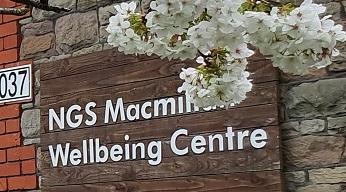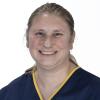Urology Cancer Clinical Nurse Specialist and Support Team
The Clinical Nurse Specialist Team
The Urology Clinical nurse specialists (CNS) are nurses who specialise in cancer of the bladder, kidney, prostate, testis and penis, we work as part of the multi-disciplinary team, alongside healthcare professionals. We provide information about your diagnosis, treatment options, specialist support and information to you, your family and carers throughout your cancer treatment and follow up care.
We provide a link and point of contact for you and your family and are your designated key worker.
Cancer Support Worker
The Cancer Support Worker (CSW) works as part of the cancer care team alongside registered practitioners to help improve care for people with cancer, helping patients to self-manage and lead as healthy lives as possible.The CSW is not a qualified clinician, but is trained and experienced in supporting people with a cancer diagnosis.
CSW’s can offer practical and emotional support, sign posting, and information about lifestyle changes, such as diet, physical activity, benefits referrals and local support available.
What we offer
- Nurse-led clinics, telephone clinics.
- Personalised information about treatment options.
- Education events and self-management programmes.
- Holistic needs assessments and individualised care plans.
- Sign-posting to other agencies.
- Referrals to other specialist teams.
- Introduction to the Macmillan Wellbeing Centre.
- Telephone advice and support.
We are happy to discuss any issues with nominated relatives or carers, but we must gain permission to do so from you the patient beforehand.
Patients transferring to another hospital
If you are referred to another hospital for ongoing treatment your care will transferred to the CNS team based at that hospital.
Holistic Needs Assessment
A holistic needs assessment (HNA) is a simple questionnaire that is completed by a person affected by cancer. It allows you to highlight the most important issues at the time of your diagnosis, and after treatment.
The questionnaire can be completed on a tablet (portable touch screen computer) with your nurse or key worker during your outpatient appointments, or at home using your own computer. You will need an access code to complete the questionnaire at home – please speak to your nurse or key worker to find out how to get an access code.
This information is then used to create an individualised care and support plan by your nurse or CSW.
Concerns covered by the HNA include:
- Physical concerns: indigestion, tiredness, changes in weight, moving around, appearance, etc.
- Practical concerns: taking care of others, work or education, transport or parking, housing, pets, etc.
- Emotional concerns: uncertainty, anger and frustration, sadness or depression, independence, body image, intimacy, etc.
- Family or relationship concerns: partner, children, person who looks over me, person I look after, etc.
- Spiritual concerns: faith or spirituality, meaning or purpose of life, etc.
- Information or support: exercise and activity, diet and nutrition, health and wellbeing, patient or carers group, etc.
Cancer Information and Support Clinic
As part of your routine care you will be invited to a group education and support session for patients and their families/friends/carer at or soon after the time of a cancer diagnosis. The aim is to provide information to you about the range of topics relating to cancer that help you take control and participate in your care and recovery. It is an important and necessary part of the support that we offer so that you can make choices best suited to you.
The clinics provide an opportunity to meet other people with similar experiences, providing reassurance, reducing anxiety and the sense of isolation some people feel.
The clinic is held in the NGS Macmillan Wellbeing Centre at Southmead Hospital and is run twice a week by the Cancer Support Workers. The session lasts for approximately two and a quarter hours with a refreshment break (tea, coffee and biscuits provided).
Pop in for a chat or call to find out more about what we can offer and how we may be able to help.
NGS Macmillan Wellbeing Centre
The NGS Macmillan Wellbeing Centre, at Southmead Hospital, is available to help anyone affected by cancer; whether you are someone who has just been diagnosed, in the middle of or finished treatment, or whether you are a friend, family member or carer of someone with cancer.
Staff at the centre can signpost patients to information, support and practical advice to help you live well through treatment and beyond.
The centre is open Monday to Friday from 9.30am until 4pm, the telephone number is: 0117 414 7051.
Useful websites
Prostate Cancer UK: www.prostatecanceruk.org
Kidney cancer UK: www.kcuk.org
Bladder Cancer UK: www.actiononbladdercancer.org
www.fightbladdercancer.co.uk
Testicular Cancer: www.uhbristol.nhs.uk/itsinthebag
Penile Cancer: www.orchid-cancer.org.uk
Macmillan Cancer Support: www.macmillan.org.uk
How to contact us:
Urology Cancer Clinical Nurse Specialists: 0117 4140512
Macmillan Wellbeing Centre: 0117 414 7051
If you or the individual you are caring for need support reading this leaflet please ask a member of staff for advice.
© North Bristol NHS Trust. This edition published March 2019. Review due March 2021. NBT003170








